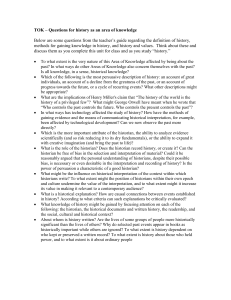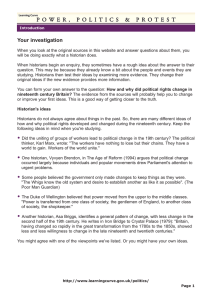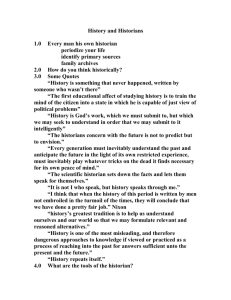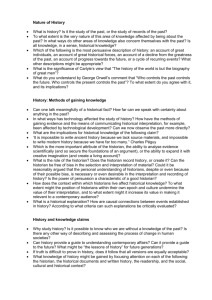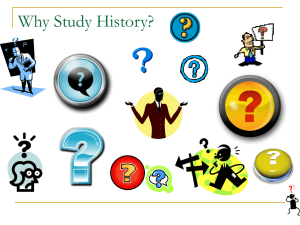Jenkins Lecture Note: History, Epistemology, Methodology
advertisement
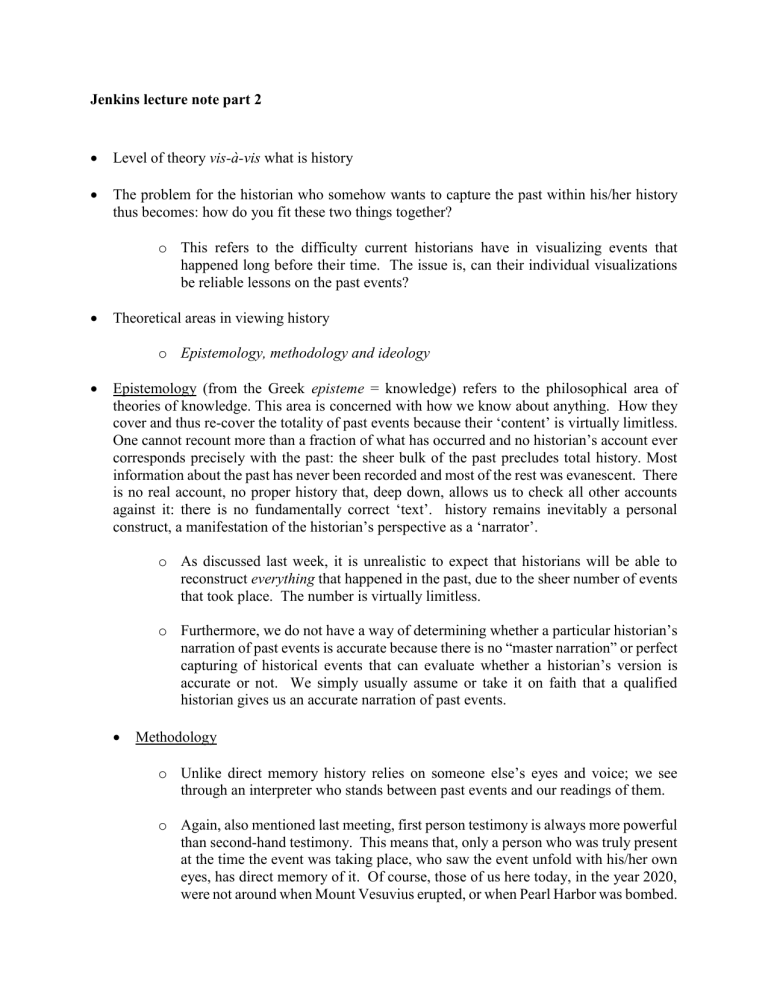
Jenkins lecture note part 2 Level of theory vis-à-vis what is history The problem for the historian who somehow wants to capture the past within his/her history thus becomes: how do you fit these two things together? o This refers to the difficulty current historians have in visualizing events that happened long before their time. The issue is, can their individual visualizations be reliable lessons on the past events? Theoretical areas in viewing history o Epistemology, methodology and ideology Epistemology (from the Greek episteme = knowledge) refers to the philosophical area of theories of knowledge. This area is concerned with how we know about anything. How they cover and thus re-cover the totality of past events because their ‘content’ is virtually limitless. One cannot recount more than a fraction of what has occurred and no historian’s account ever corresponds precisely with the past: the sheer bulk of the past precludes total history. Most information about the past has never been recorded and most of the rest was evanescent. There is no real account, no proper history that, deep down, allows us to check all other accounts against it: there is no fundamentally correct ‘text’. history remains inevitably a personal construct, a manifestation of the historian’s perspective as a ‘narrator’. o As discussed last week, it is unrealistic to expect that historians will be able to reconstruct everything that happened in the past, due to the sheer number of events that took place. The number is virtually limitless. o Furthermore, we do not have a way of determining whether a particular historian’s narration of past events is accurate because there is no “master narration” or perfect capturing of historical events that can evaluate whether a historian’s version is accurate or not. We simply usually assume or take it on faith that a qualified historian gives us an accurate narration of past events. Methodology o Unlike direct memory history relies on someone else’s eyes and voice; we see through an interpreter who stands between past events and our readings of them. o Again, also mentioned last meeting, first person testimony is always more powerful than second-hand testimony. This means that, only a person who was truly present at the time the event was taking place, who saw the event unfold with his/her own eyes, has direct memory of it. Of course, those of us here today, in the year 2020, were not around when Mount Vesuvius erupted, or when Pearl Harbor was bombed. Thus, we are left with no choice but to believe what historians tell us actually happened during those events. Ideology. No matter how verifiable, how widely acceptable or checkable, history remains inevitably a personal construct, a manifestation of the historian’s perspective as a ‘narrator’. o Narration of past events, whenever narrated by people, either those that were present or not present when said event was unfolding, is always biased, skewed, and influenced by the ideology, background and personally history of the narrator, or the historian.


